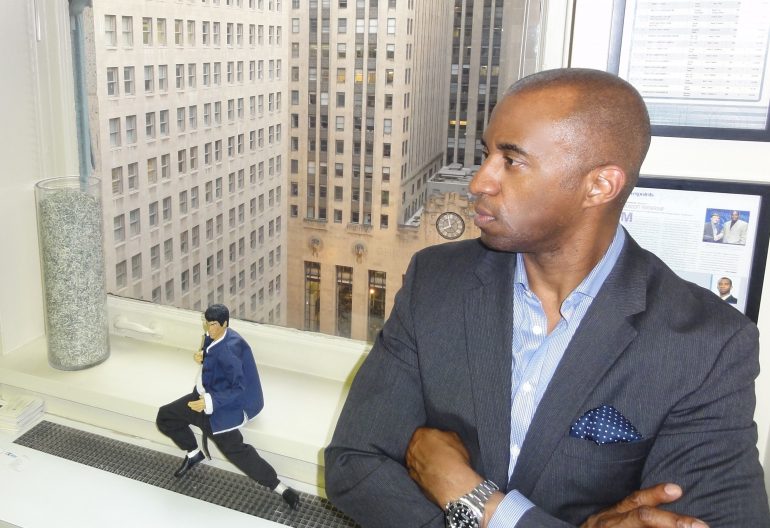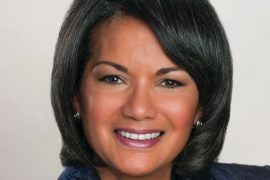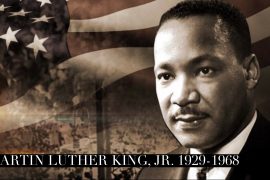Chicago based international investment banker and financier Shawn Baldwin has been fighting an uphill David-and-Goliath battle for a dozen years now against financial regulators seemingly determined to keep him in their crosshairs.
Baldwin is Chairman of the AIA Group, an advisory and investment firm valued at $17 million that he founded in 2012, which specializes in the foreign exchange, derivatives and commodities markets. Through his career, Baldwin has provided trading, advisory, research and investment banking services to pension funds, foundations, endowments and corporations.
The 52-year-old Dayton, Ohio native’s career began in the 1990s when he worked for several financial companies, then found success as chief operating officer of a publicly traded investment firm during the dotcom era. It became a Black Enterprise 100 company worth over $400 million until the dotcom bubble burst.
In 2001, Baldwin formed CMG Institutional Trading LLC after acquiring several smaller broker-dealers and moving to Chicago. Success followed. Between 2002 and 2005, the investment bank he founded participated in over 70 capital markets transactions worth over $68 billion dollars, including with the Chicago Mercantile Exchange, New York Stock Exchange and Google.
CMG became Baldwin’s second Black Enterprise 100 Company before he turned 40. He made other lists, including Investment Dealers Digest’s Top 40 under 40 and was named one of the 75 Most Powerful Black Executives on Wall Street. He became the second African American to join the Chicago Stock Exchange in its 130-year history.
No shrinking violet – far from it – Baldwin maintained a high profile as he earned rapid critical acclaim in the financial sector. He had earned a Master’s in Finance from Oxford University and was featured in stories or made appearances in or on Bloomberg, CNN, CNBC, NBC and CBS, The Economist, Business Week, Fortune, Money, and the Wall Street Journal.
Baldwin contributed financial articles to Forbes and was selected by Blackberry to be its spokesman, appearing in the company’s print and TV advertising campaigns.
He hosted his own economic conferences attended by leading industry professionals and has been placed at some of the most influential, exclusive international finance forums worldwide, including International Monetary Fund meetings. He’s met with central bankers in Tokyo and been invited to speak and attend upper-tier finance meetings such as the Bloomberg Most Influential Conference and the Forbes and Milken conferences.
Magazines including Forbes and Fast Company have published his discussions and analysis with billionaires such as Carlos Slim, T. Boone Pickens, Federal Reserve Chairman Janet Yellen, and European Central Bank President Mario Draghi on crucial monetary policy issues.
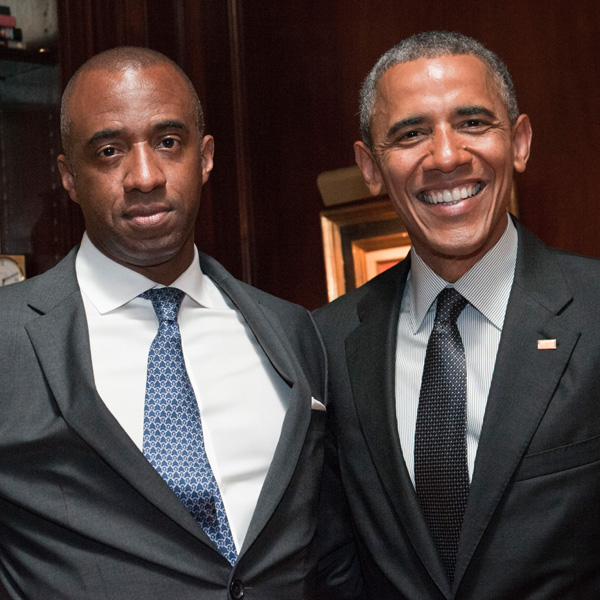

Out Of His Place?
With such an enormous profile for a Black person in an overwhelmingly non-Black industry, Baldwin began to draw the attention of financial regulators, for whatever their reasons were, and they have dogged him to this day.
In 2006, he became a target of the Financial Industry Regulatory Authority (FINRA), a private non-governmental organization authorized by Congress that regulates member brokerage firms and exchange markets to protect America’s investors by making sure the broker-dealer industry operates fairly and honestly.
Baldwin’s problems with FINRA had begun in 2001, when he applied for membership after acquiring CMG. The review, which typically takes six months, took 18 months for Baldwin, setting the stage for a contentious relationship.
“In 2005, FINRA assigned a special investigator to look into Baldwin’s trading activities, a process typically reserved for problem firms, though his firm had no complaints; none of Baldwin’s employees had any regulatory history either,” according to Christopher Chaney, publisher of the business publication NV Magazine.
In its August 22, 2018 edition, Chaney wrote a detailed examination of Baldwin’s situation. (“Violations Or Vendetta?” by Christopher Chaney.)
FINRA said its investigation found that Baldwin’s firm CMG was undercapitalized. Baldwin says it was never undercapitalized in any deal he made. In fact he said he over-funded his account.
Baldwin adds that FINRA never proved he was capital deficient, refused repeated requests to perform capital computations to support their allegations and didn’t specify what the shortages were.
Yet, FINRA expelled Baldwin and CMG’s membership for two years and fined him $25,000, which he refused to pay. In his article, Chaney quotes former FINRA attorney Willis Brown as saying, after he reviewed Baldwin’s extensive documentation, that “Mr. Baldwin’s firm was incredibly over capitalized. I have never seen anything like this.”
Making Too Much Money?
“When scrutinized, the alleged infractions they made against me seem questionable and are technical offenses – not criminal – and more importantly, I didn’t commit them,” Baldwin says. He adds that any month when he made more than a certain amount of money, members of FINRA’s District 8, in which CMG is located, found a reason to disrupt his business.
Of the dispute with FINRA, Baldwin says, “Certain members of the elite and old guard weren’t quite ready for me and they targeted spoiling my reputation. A number of times they wanted me to agree to settle against phantom charges and I steadfastly refused.”
Baldwin calls the key trigger an event in which he kicked FINRA regulators out of his offices over what he perceived to be alleged mistreatment. That didn’t go over well with the agency and caused them to dig in on their investigation of Baldwin.
But to his point, none of the $68 billion in transactions by CMG were ever singled out for any violations and Baldwin, his firm and his staff all had spotless records during the investment bank’s dealings.
Baldwin successfully fought for his reinstatement to FINRA and three people at the agency were found to have given false information in the case in which Baldwin was expelled. The three were eventually fired, with no reason given.
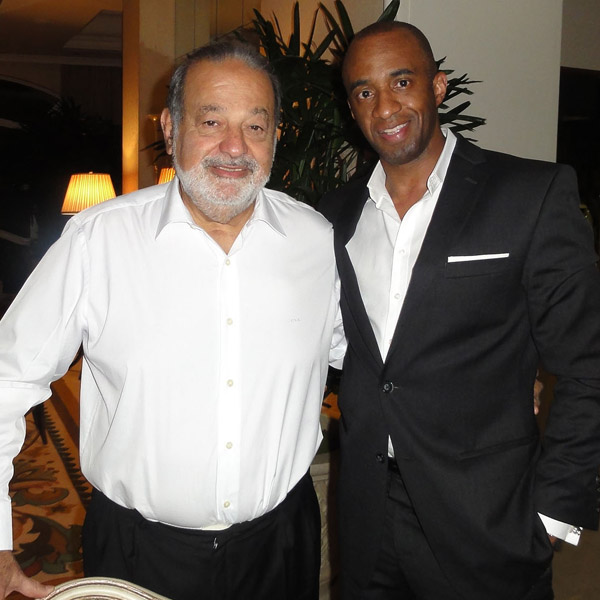
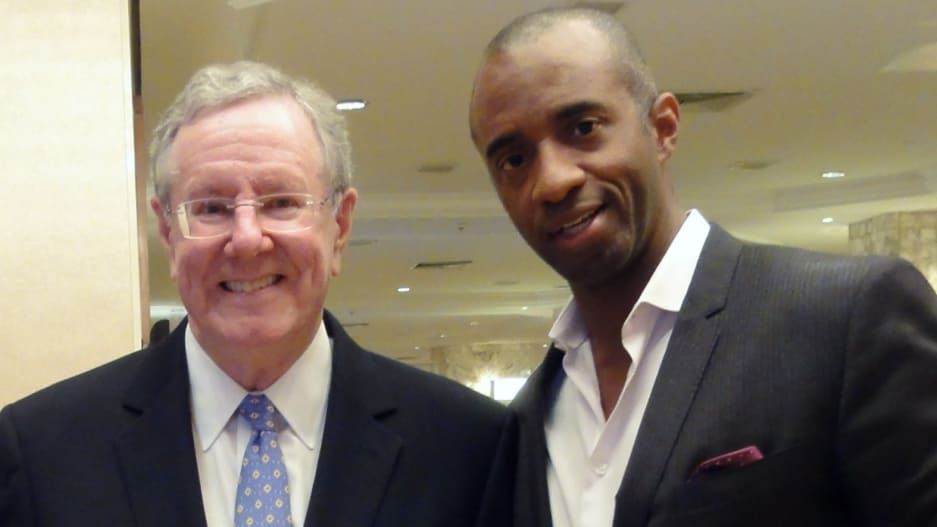
But, in 2008 Baldwin was permanently barred by FINRA after they alleged multiple new allegations including municipal violations. However, Baldwin says he didn’t participate in municipal transactions and that FINRA refused to name any municipal transactions that he was a part of.
Altogether, FINRA expelled and/or barred Baldwin and CMG on three separate occasions, two of which occurred when he was not conducting any securities business after he shut the company down. In December 2006, after being expelled and barred by FINRA, Baldwin withdrew all the money out of CMG accounts and ended his U.S. trading practices, focusing instead on unregulated client advisory services and trading overseas.
It is very important for me to stand my ground and fight. I want everyone to be clear that my integrity is not for sale or lease at any price.
Jesse Jackson Gets Involved
Baldwin’s travails came to the attention of Rev. Jesse Jackson because Baldwin was a member of Operation PUSH’s International Trade Bureau.
Jackson and PUSH’s special counsel Brenda Robinson sent three letters to FINRA CEO and Chairman Richard Ketchum and Vice President and General Counsel T. Grant Callery on September 13, October 16 and November 30 in 2010 requesting a meeting to discuss Baldwin’s case.
Excerpts from the PUSH letters include the statements:
• “From our initial review, it appears that the first expulsion was not warranted and the claims of net capital deficiency were untrue and can be verified by a review of reports and bank statements. An extensive review of the financial statements of CMG shows that the broker-dealer was hundreds of thousands of dollars in excess of the net capital requirements.”
• “It was determined that the top three officials lied under oath and were forced to recant their testimony.”
• “The initial statements and proceedings, at least in part, appear to be based on inaccurate data, no calculations of net capital and some false assumptions.”
• “Enclosed please find documents that we believe outline and support allegations of unfair treatment and undue harassment of Shawn Baldwin.”
• “FINRA has repeatedly released and re-released notice of these bars and expulsions against Mr. Baldwin and CMG, from 2007 through 2010, resulting in an obvious negative impact upon his potential business operations as each fresh iteration of the disciplinary actions left the suggestion that the claims to which they spoke were also fresh.”
Rev. Jackson asked “to meet to discuss these matters with you, with the hope that together we can work to resolve this matter amicably for the benefit of all parties involved.” No such meeting ever took place.
Ted Word, CMG’s former in-house counsel told Chaney at NV Magazine, “When FINRA comes down on a firm of this kind, it’s because they misappropriated client funds. That did not happen here. They made the allegation that the balances that the firm needed to maintain were not there, and to come down so heavy handed on something so slight is quite incredible, especially when the funds were there.”
New Pursuit By New Agencies
In the meantime, Baldwin says FINRA investigators also changed the name on a debenture statement, or unsecured loan, involving a separate entity he owns called Capital Management Group Securities, to CMG Institutional Trading, the original company that he shut down, and submitted the false documents to the Illinois Department of Securities in an attempt to start a new probe in 2011.
“They were trying to say that I was involved in securities trading in the United States, which I wasn’t. It was a business loan,” Baldwin states, alleging that officers of FINRA conspired with regulators in the Illinois Secretary of State’s Office to bring false charges against him.
Baldwin describes the problem with the Illinois state regulator as “phantom charges” the regulator made up against a company that “wasn’t involved and no longer existed.”
Baldwin says that the Secretary of State used the company to try to establish jurisdiction and cause him problems. He claims that if anyone looks at the documents and proceedings they will clearly see bias and corruption, even if they have no understanding of high finance.
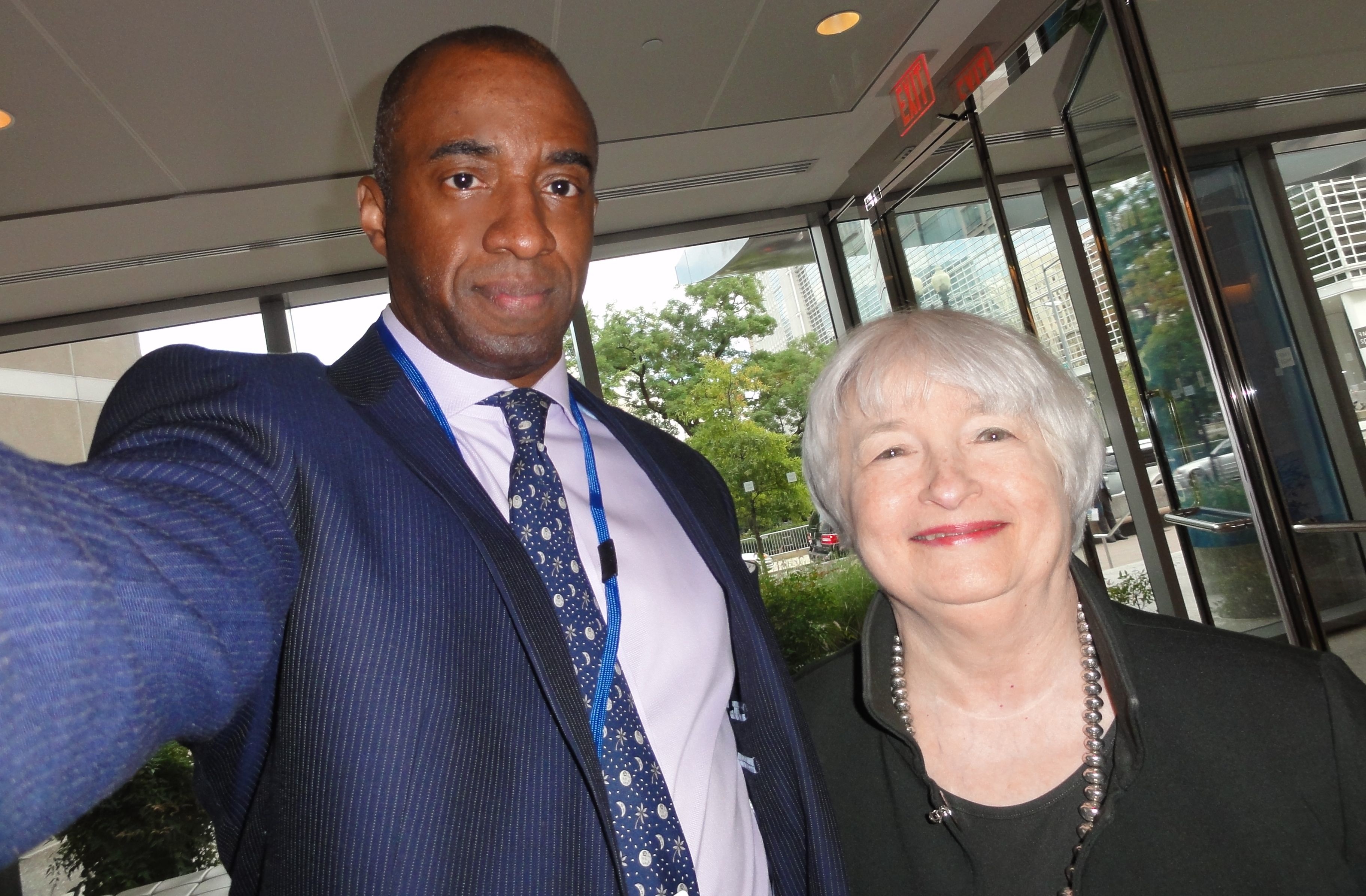
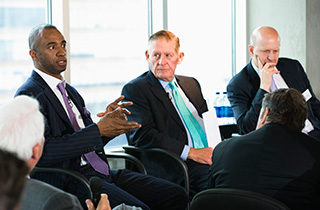
The Illinois case against Baldwin was heard by a referee, who ruled in Baldwin’s favor, and Baldwin says he settled with the lenders of the loan, even though he didn’t have to. But the person in charge of the case for the state “overturned the referee’s not guilty verdict and declared it fraud,” says Baldwin, who contends that the organization has posted false information for years on him online that it refuses to correct.
“She claimed the lenders had not been paid and when contacted via phone and email by both lenders who stated that they had settled with me, she told the lenders that they were going to pursue me anyway,” Baldwin says, adding that the woman admitted to a confidant that FINRA told her to begin the proceeding against Baldwin in the first place.
The Illinois Securities Department prohibited Baldwin from offering investment advice or selling securities in the state in 2013.
Baldwin alleges that the woman in charge of the state’s case also told the U.S. Attorney’s Office in Chicago that he hadn’t paid the lenders “and that was 100 percent false,” Baldwin says.
In December of 2017, the Department of Justice filed an indictment against Baldwin noting that “FINRA had revoked all of Shawn Baldwin’s registrations,” and federal prosecutors charged Baldwin with eight counts of wire fraud in connection with his business practices from 2006 through May of 2017. The indictment didn’t include any of Baldwin’s companies, he maintains.
Baldwin counters, “I will be glad to have the disinfectant of a federal court. I have maintained records meticulously over the last 12 years. I also believe that the courtroom will eliminate any false statements by others due to fear of perjury…and I am looking forward to that.”
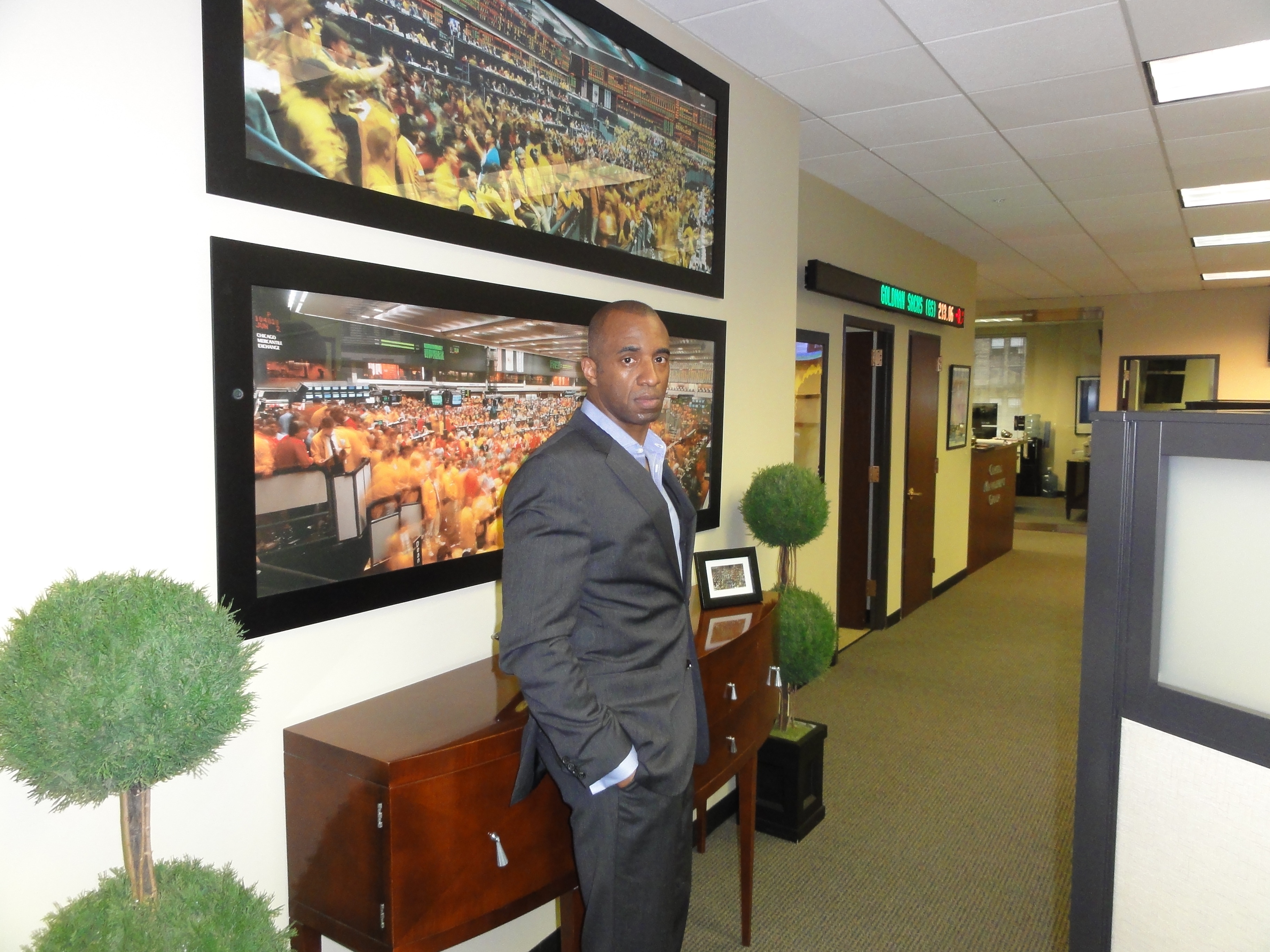
Musing on the rough road he’s traveled, Baldwin notes, “Staying in finance after the regulatory assault has been daunting, but I’m determined. A consistent theme in my life has been a corrupt regulator attempting to not afford me the rights of other businessmen.”
Baldwin recently has been displaying sensitive internal documents online and calling for a review and question of the regulators. On his Facebook post, he specifically names the regulators responsible and shows the actual documents for anyone to read that he claims verify his innocence. (See Baldwin-FINRA, and Baldwin-Illinois Secretary of State.)
In retrospect, though, Baldwin says, “You know, I saw an interview with Jamie Dimon (chairman and CEO of Chase Bank) in which he readily stated that even he had to submit to regulators, whether he was right or wrong, so that he and the firm could move forward. This was something a number of key people told me to do that I didn’t want to do because I believed that it showed weakness.”
When his peers in the finance community are asked about the allegations, some say that Baldwin’s arrogance is the problem – “brash” is a word often used to describe him – while others say that he is courageous and right to stand up against unfair treatment.
“My parents raised me to fight for what I believe in and at some point the attacks became personal in an attempt to discredit and stop me,” Baldwin says. “In retrospect, I probably should have devised another way to display my anger at the mistreatment.
“However, it is very important for me to stand my ground and fight. I want everyone to be clear that my integrity is not for sale or lease at any price. So, I’ve decided to just move forward and focus on opportunities in the future where I know I can make high-impact positive contributions.”

